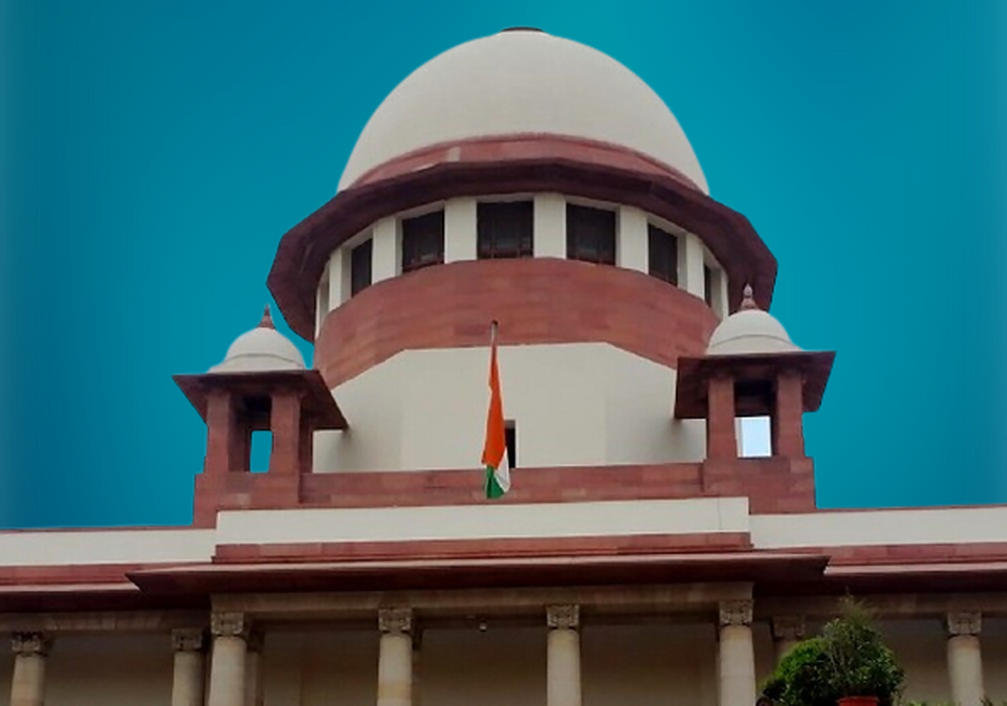In Criminal Appeal No. 2276 of 2014 -SC- Supreme Court acquits man of rape charges, saying prosecution failed to prove victim's age & lack of consent
Justice Sanjay Kishan Kaul, Justice C.T. Ravikumar & Justice Sudhanshu Dhulia [30-10-2023]

Read Order: Manak Chand @ Mani V. The State of Haryana
Chahat Varma
New Delhi, October 31, 2023: The Supreme Court has acquitted a man of rape charges, holding that that the prosecution had failed to prove that the girl was a minor at the time of the alleged incident and that there was no evidence to suggest that the sexual intercourse was non-consensual.
In this case, the prosecution's version was as follows: On 02.09.2000, Pappu, who is the elder brother of the appellant, asked Gian Chand (complainant), his father-in-law, to send Gian Chand's younger daughter (prosecutrix) to Pappu's house to take care of her sister, who had recently given birth to a child. The prosecutrix was allegedly 15 years old at the time. She was sent by her father to live with her sister's matrimonial family for a temporary period. More than a month later, the prosecutrix returned to her own house and disclosed to her mother that, during her stay at her sister's house, the appellant, Manak Chand @ Mani, had raped her. Allegedly, this offense occurred on two to three occasions. Initially, due to the family relations, efforts were made to settle the matter, and both families had even agreed to the marriage of the prosecutrix with the appellant. However, it is alleged that the appellant's family later declined this offer, leading to the lodging of a FIR under Sections 376, 342, and 506 of the Indian Penal Code (IPC).
A three-judge bench of Justice Sanjay Kishan Kaul, Justice C.T. Ravikumar and Justice Sudhanshu Dhulia opined that the testimony of the prosecutrix did not inspire confidence. They pointed out several reasons for their scepticism.
The bench noted that the prosecutrix alleged that the first incident of rape occurred on 12.09.2000 but the prosecutrix did not disclose this to anyone immediately. She later alleged rape on two or three different occasions, but did not provide specific dates and times. Secondly, evidence presented during the trial, particularly from a school register submitted by a witness (PW-2), indicated that the prosecutrix had attended her school on the same day, when she alleged the first incident of rape. This was at a different location from where she claimed to be staying at the time, which raised doubts about the credibility of her story. Furthermore, the prosecution admitted that the FIR was filed only after the initial proposal of marriage was turned down. This raised questions about the motivations behind the allegations.
Further, the bench observed that the primary evidence used to establish the prosecutrix as a minor (less than sixteen years of age) was the school register of Government Girls High School. However, the bench noted that this date of birth was recorded not based on the statement of the prosecutrix's parents but by someone else, and it was derived from a transfer certificate of Government Primary School. Importantly, the transfer certificate that served as the basis for recording the date of birth was never produced in court.
The bench referred to the case of Birad Mal Singhvi v. Anand Purohit [LQ/SC/1988/362], where the Supreme Court had observed that the date of birth recorded in a school register would lack evidentiary value unless supported by the testimony of the person who made the entry or the person who provided the date of birth.
Thus, the bench stated that, in their opinion, the evidence provided by the prosecution regarding the age of the prosecutrix, based on the school register, was not adequate to establish that the prosecutrix was less than sixteen years of age. Therefore, it was neither safe nor fair to convict the accused, especially given the critical significance of the prosecutrix's age in the case.
The bench also pointed out that, given the significance of age as a determining factor, the prosecution should have conducted a bone ossification test to establish the age of the prosecutrix. However, this essential step had not been taken in the present case.
The bench highlighted that the prosecution's case included the claim that the proposal for the marriage of the prosecutrix with the appellant was initially accepted by the appellant's family. It was only when the appellant refused the marriage offer that the FIR was lodged. The bench considered these circumstances, along with the relative ages of the prosecutrix and the accused, as factors that indicated the alleged act might have been consensual rather than rape. Furthermore, the bench emphasized that the age of the prosecutrix was a crucial factor in determining whether the act constituted rape. However, the medical evidence indicated that she was over 16 years of age. The only evidence provided by the prosecution to establish the date of birth as 04.04.1987, which was the school register, had not been conclusively proven. This raised doubts about the veracity of the rape allegations in the case.
Thus, the bench determined that the prosecution failed to conclusively prove that the prosecutrix was less than sixteen years of age at the time of the alleged crime, which should have led to the benefit of the doubt in favour of the appellant. Secondly, they were not convinced that the elements of rape, as defined under Section 375 of the IPC, were met in this case, as there was a lack of evidence suggesting non-consensual sexual intercourse between the appellant and the prosecutrix.
As a result of its findings, the court allowed the appeal and overturned the judgments of both the Punjab and Haryana High Court and the Trial Court. Consequently, the appellant was acquitted of the charges under Section 376 of the IPC.
Sign up for our weekly newsletter to stay up to date on our product, events featured blog, special offer and all of the exciting things that take place here at Legitquest.




Add a Comment